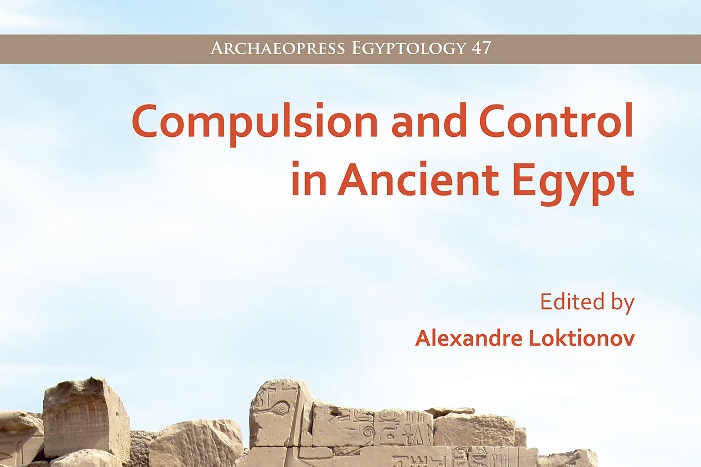Archaeopress Archaeology proporciona la posibilidad de descargar de forma libre y gratuita la publicación editada por Alexandre Loktionov: Compulsion and Control in Ancient Egypt. Está disponible también para compra.
¿Cómo mantenían los antiguos egipcios el control de su Estado? Este libro examina esta cuestión desde una amplia variedad de ángulos y a lo largo de todos los periodos de la historia egipcia, desde el Reino Antiguo hasta la época copta. Se abordan temas como la función de control de los templos y la teología, las fronteras estatales, la administración de los escribas, la representación visual, el mecenazgo y la propia lengua egipcia. La teoría del pluralismo jurídico, que defiende que un único Estado puede basarse en múltiples estrategias -a veces incluso contradictorias- para defender lo que considera justo dentro de los límites de lo que nominalmente es una única jurisdicción, enlaza estas diferentes vertientes. Este enfoque teórico, aunque cada vez más común en los estudios poscoloniales modernos y en la historia del derecho, aún no se ha aplicado en la egiptología. Este libro pretende llenar ese vacío. Los capítulos son versiones ampliadas de ponencias presentadas originalmente en la 3ª conferencia de egiptología Lady Wallis Budge, organizada por el Christ’s College y celebrada en línea los días 27 y 28 de agosto de 2020.
Contenido:
Preface – Alexandre Loktionov
Introduction: Pluralisms of Compulsion and Control in Ancient Egypt – Alexandre Loktionov
I. Compulsion and Control in the Temple Sphere
1. The Turin Indictment Papyrus (P. Turin C. 1887): an Enquiry about the Forms of Compulsion in
the Text – Marcella Trapani
2. The Egyptian Temples of Oxyrhynchus and their Personnel Under the Roman Empire – Leah Mascia
II. Compulsion and Control in Religious and Funerary Thought
3. ‘You shall not constrain my bꜢ’. Control through and of the bꜢ.(w) – Anne Landborg
4. Ancestors as a Source of Legal Authority – Renata Schiavo
III. Compulsion and Control around Borders
5. Fort-building and Violence as the Mode of Control of the Margins in Late Middle Kingdom Nubia – Adam Fagbore
6. Compulsory Foreign Labour in Late Bronze Age Egypt: Towards Understanding a Forced
Migration-Unfree Labour Nexus – Christian Langer
7. Unwritten Compulsion: Social Integration, Norms and Self-Control at Kurgus in Medieval Nubia – Loretta Kilroe
IV. Compulsion and Control in the Administration of Labour and Human Resources
8. Controlling Workforces at the Palace: Some Perspectives on Administrative Practice at
Kom Medinet Gurob – Fredrik Hagen
9. Bureaucratic Control of New Kingdom Tomb Building Projects – Rune Olsen
V. Compulsion and Control in Text and Image
10. Images of Control and Submission in Old Kingdom Funerary Iconography: The Egyptian Tomb
as a ‘Disciplinary Institution’ – Matthieu Hagenmüller
11. Social Control in Middle Kingdom Egypt: Embodied Experience and Symbolic Violence – Margaret Maitland
12. Human Branding Practices during the New Kingdom: A Form of Control between Metaphor
and Reality – Marta Valerio
VI. Compulsion and Control through Patronage and Unequal Status Relationships
13. Patronage and Protection in Late Pharaonic and Ptolemaic Egypt – Brian Muhs
14. “When Dad says no”: Paternal Authority and Control in the Context of Egyptian Men’s First Marriages – Steffie van Gompel
VII. The Language of Compulsion and Control
15. Words that bind: Earlier Egyptian Language of Compulsion and Control – Sami Uljas
16. How to tell of Compulsion and Control in Demotic: a Prospect from Contextual Narratology – John Tait
17. Perceptions of Liberty in the Coptic Period: Affective Responses to Socio-religious Pressures
in the Western Desert – Victoria Fendel
Acceso a descarga: https://www.archaeopress.com/Archaeopress/Products/9781803275857

